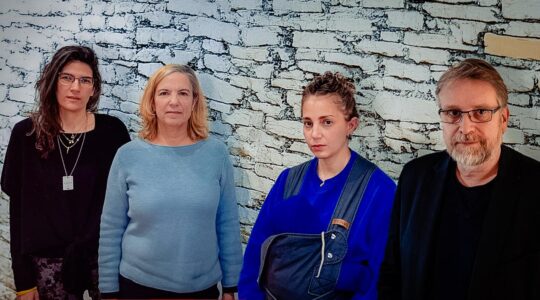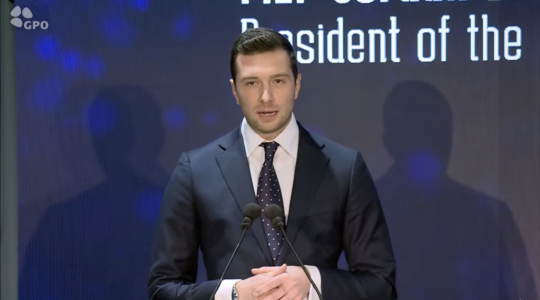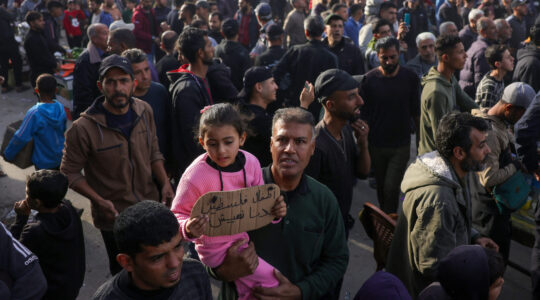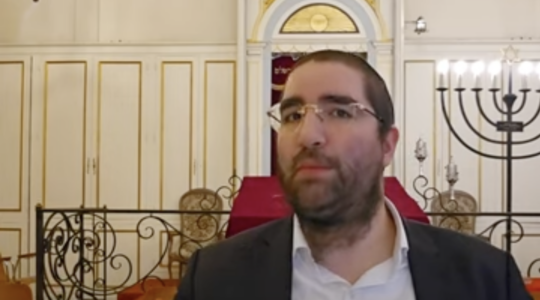
Moscow cantor Dmitry Karpenko discusses the American Jewish musical tradition at Limmud FSU, held in Odessa, Ukraine. (Alex Weisler)
I only speak English and bad high-school Italian, so covering a conference held almost entirely in Russian isn’t the easiest for me.
Luckily, Limmud doesn’t make it too hard.
There’s usually about five options for each time slot over the next two days, from more traditional lectures — these would be the workshops in which I smile blandly and try to pick out the odd word — to multimedia seminars, like the one just held by Dmitry Karpenko, cantor of Moscow’s progressive Jewish community.
I couldn’t comprehend most of Karpenko’s lecture (apart from "Americanska," "Ashkenazi", "music" and "Debbie Friedman"), but his subject — how Jewish music in America is connected to the country’s larger musical culture — intrigued me.
And of course, when Karpenko began to play his guitar and sing lively versions of "Modeh Ani" and "Mi Khamokha," the language gap was closed.
[[READMORE]]
The cantor had a kind voice, and he knew how to work through the crowd of about 20 — at several points, we were instructed to clap along in time.
I wish I could have been able to better follow the interplay between Karpenko and his audience, which seemed to be engaged and happy to interrupt him to ask a clarifying question or add an observation.
But the workshop still appealed to me, as did "The Dreams Lead Here," a photography exhibition by Ukraine native Roman Bronshtein, voted the best photographer among new Israeli immigrants according to 2009.
Still, I can’t spend two days with a blank stare during lectures — and I wouldn’t want to. I have meetings set up aside with some of Limmud’s English-speaking coordinators, and I’m hopeful that those will provide a bit more context than I’m able to — alone and with a Russian vocabulary consisting of just a handful of words.
At a "What is Limmud?" panel discussion this morning, Limmud FSU founder and current executive chairman of the committee Chaim Chesler related an anecdote about a recent conference in Beersheba celebrating space and technology.
Unfamiliar with Limmud prior to his talk, a Russian cosmonaut approached Chesler afterwards and praised its educational model.
"Together, we are better," the cosmonaut told Chesler, who then repeated and emphasized the sentiment for the Odessa audience this morning.
I’m inclined to agree. Though I’m feeling vaguely too American at this very Ukrainian event, and I’m not positive on what I have to bring to the table aside from my reporter’s notebook, I’m glad I’m here.
And as the next two days develop and I shuffle between gala parties and intimate workshops, I’m hoping I can appropriately convey this event’s energy.
So often when we think of Ukraine and other Eastern European Jewish communities, we turn toward the past and lament the losses of the Holocaust, pogroms and immigration.
That’s not the point here at Limmud.
These Ukrainians are focused on the future. And watching them in action, I am, too.
JTA has documented Jewish history in real-time for over a century. Keep our journalism strong by joining us in supporting independent, award-winning reporting.





